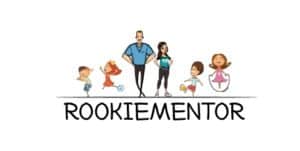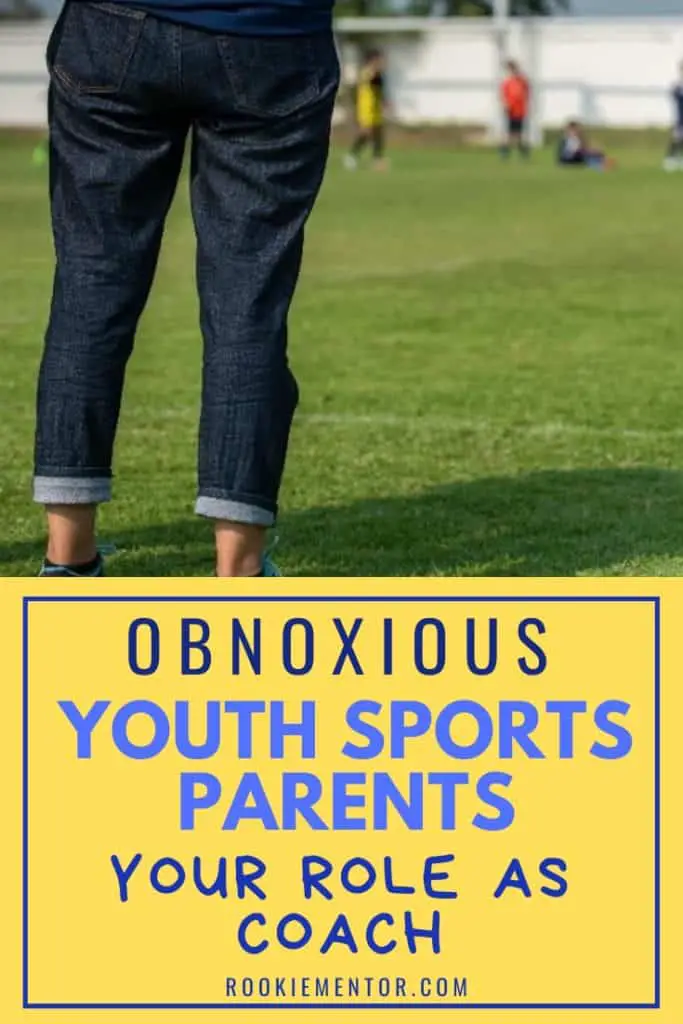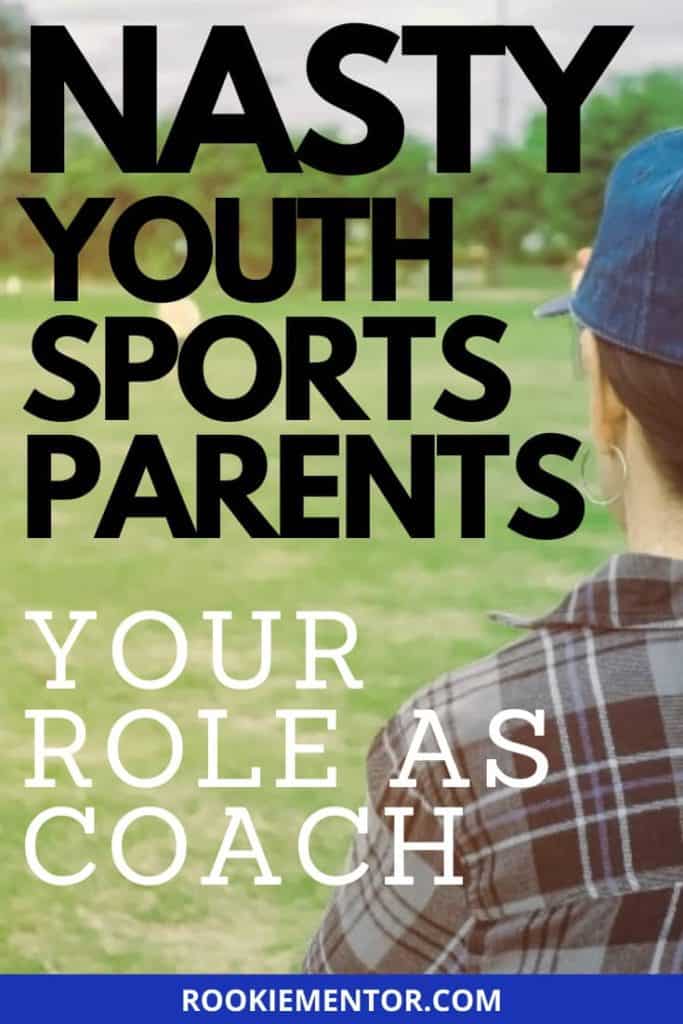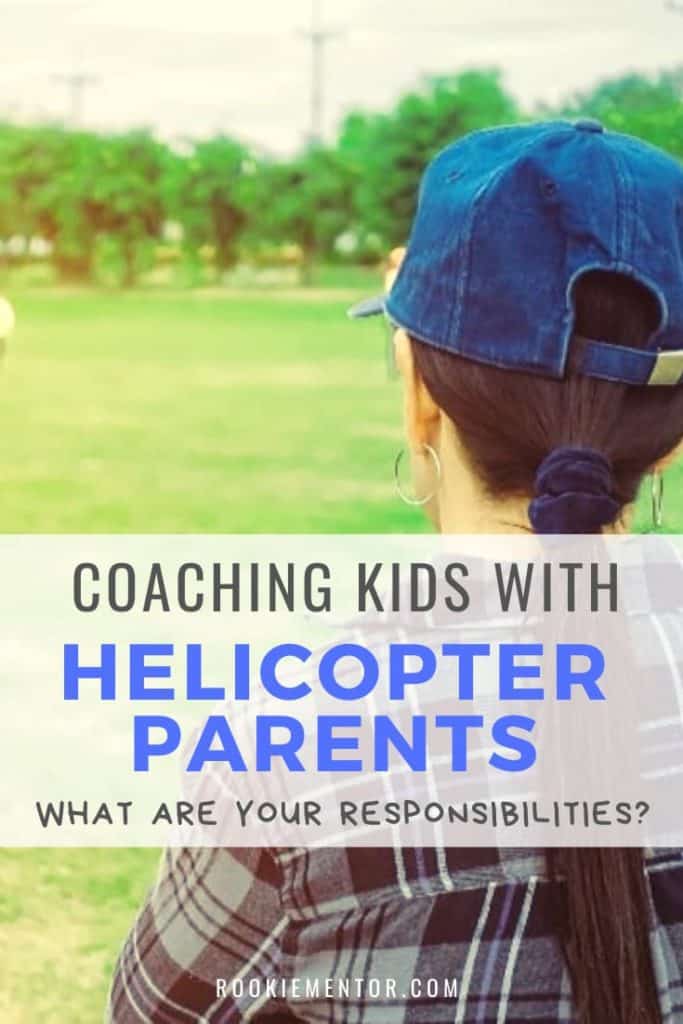I’m sure most of you have a story about an obnoxious youth sports parent. The one hurling abuse at the umpire, yelling at their kid for making a mistake, blocking the view of the other parents and interfering with your coaching philosophy. But what is your role in managing these obnoxious youth sports parents when their emotions get the better of them?
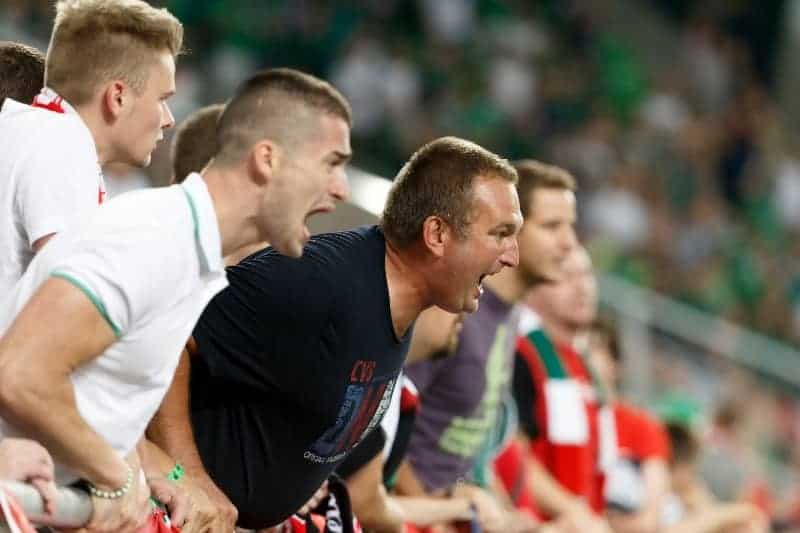
Managing obnoxious parents as a coach at the youth sports level is about pre-emptive measures to stop it before parents get to that level. Set behavioural boundaries, confront parents on your concerns in a timely manner and even involve the club, league or local authorities (where necessary) to achieve a safe environment.
When defined, obnoxious means “annoying in a particularly vulgar and cheeky way”. But I have observed in social circles and online forums it also being described as; rude, insulting, offensive and blatantly disrespectful. Parents showing this kind of behavior are ruining the atmosphere of the game and have no place in youth sports. This post explores your role as coach when managing obnoxious parents to avoid animated or even physical altercations and even worse, kids quitting sports.
Step 1: Set Clear Boundaries at the Start of the Season
We’d much rather prevent something then find a cure once it’s occurred, right?
Start the season off on the right, supportive foot and call a meeting with all parents. You can label this as a “get to know your coaches” session but really the main point is to convey a few messages about parent behavior and expectations. What will be tolerated and what won’t.
Hold this meeting either before or after the first practice or as early as possible at the start of the season.
Start the meeting introducing yourself and your assistant coaches. Make it fun and jovial. It is youth sports after all and to your knowledge, there are no parents (or maybe a few you have heard about) that you are labeling “obnoxious” just yet.
The information you want to share is simply “good to know” at this point and not a warning. But be firm enough in your language that it’s clear you don’t take any rubbish regarding parent behavior.
During the meeting with all parents here are some things to discuss which commonly remove the “obnoxious” tag from parents:
- Drop out rates of youth sports and why kids want to play. Read Is Youth Sports Too Intense? A Message For Our Coaches to get some stats up your sleeve.
- If you have a disagreement with the referee remind them how they should react. A gentle reminder that organized sport doesn’t happen without referees may fit well here.
- Avoiding a feud with other parents and how they should behave if it does happen
- Issues with you as a coach and the correct steps they should take to seek feedback
- Issues with your child should never be aired to the entire team
As you explain each point, make it very clear that youth sports are ALL ABOUT THE KIDS and not the adults. That includes you as the coach.
It’s not about your coaching record but your ability to be a role model teaching resilience, sportsmanship and the fundamentals of sports.
Related post: What are the Responsibilities of a Youth Sports Coach?
And it’s their responsibility as parents to be the biggest fan for their child, not their biggest critic.
Explain that their kid only gets one childhood and before too long they won’t be taking them to sports and cheering them on in the crowd.
So invite them to savor these moments and chill out on the sideline. Allow them to let you get frustrated as the coach while they simply enjoy the pleasure of watching their kid play.
If They Have an Issue with You as Coach…
Everyone is different here but I needed time to cool off before talking to a passionate, persistent parent.
Let’s face it. Parents don’t say “can I talk to you” to state something positive like you’re doing a good job. Ever.
So you might want to opt for this cooling-off strategy too.
Explain that you have a strict “cooling off period” where you don’t want to be questioned immediately after a game. Your emotions are high and you probably won’t have the constructive meeting they are desperate for.
Instead, be very open about receiving constructive feedback during organized meetings after (or before) practice.
As the coach, if you are not open to feedback and providing solutions it can infuriate the already obnoxious parent making matters worse.
If things are going south and the obnoxious parent doesn’t seem to have listened to a word of what you said at the start of the season, move over to step 2.

Step 2: Advise Parents of Some Social Cues Pointing to Their Obnoxious Behavior
Before I get too ahead of myself, between step 1 and step 2, a few things have typically happened.
- The un-obnoxious parents have banded together acknowledging that a particular parent is ruining the experience of watching their child play. Not much will probably happen as a result of this as people are scared of the outcome with confrontation. The parents normally move away, trying to block out the noise while feeling really sorry for the obnoxious parents child.
“If an adult can’t manage their own emotions at their child’s game, they’re probably not going to react in a reasonable way if you approach them”.
(source)
- The unobnoxious parents will approach you asking for help if they “can’t take it anymore.”
- Kids, not only their own, start to become impacted by the obnoxious parent. You notice they are becoming confused with what you are trying to teach with the contradicting advice from the parent. Kids will start saying they don’t want to play and appear to make more mistakes out of fear.
- You are becoming frustrated because you cannot hear yourself think
- Other team coaches and parents say off the cuff remarks after the game to you about “taking control of your parents.”
So What Do You Do? Confront Them in a Safe, Civilized, Respectful Manner
As I have mentioned, I don’t like being confronted when emotions are high, right? So it’s probably not a good idea to approach an elevated parent at this time either.
“When parents misbehave, it could be emotionally charged and potentially dangerous. So, be very careful and diplomatic in how you approach unruly parents”.
Psychology Today
If ANY physical violence occurs during the game, then this is a whole other story and needs immediate attention. So I guess I am referring to niggling verbal abuse that is starting to impact on the entire team, including the other parents.
Make a time to sit down and talk about what you have observed and heard from other parents, even the opposing ones.
Now, this is a tender conversation requiring a level headed approach to avoid the situation getting out of hand.
If you need support, bring along your manager, assistant coach or club representative. Even if they don’t say a word.
In my experience, pointing out behaviors shown by others in response to their poor habits can be very powerful.
Here are a few behaviors that may be worth mentioning which can have a profound effect on how they act in the future.
- Your spouse doesn’t want to sit with you
- Other parents don’t want to sit next to you
- Other parents are moving away from you midway through the game because they don’t want to hear your yelling AND because you are blocking their view every time you disagree with something
- Other parents report and even tell you directly to stop yelling at THEIR kid
- Your child asks you to stop yelling at them
- Your child says you are embarrassing them
- The umpire gives you a warning or several warnings for your behavior
- Parents from other teams say things like “calm down” when they see you in the car park
- Kids look at you in fear after the game
Some parents will downright disagree with everything you’ve said so be prepared for this.
But the same obnoxious parent might actually alter their behavior after they have had some time to think about it. Everyone will be different.
The important thing is you have approached them and told them what is acceptable behavior, which takes guts and is often avoided by most coaches.
If they feel they cannot control themselves and admittedly get revved up, encourage them to seek independent, professional help. Life is too short to be angry all the time.

Step 3. Involve the Club, Association or Governing Body
If the message of good behavior is still not sinking in, it’s time to call in the big guns.
You don’t have the time nor the energy to focus on controlling obnoxious parents as it’s taking away your attention from developing the kids.
Involving the club president, association board or even the National Parent–Teacher Association (PTA) may be your only option if things get really nasty.
Let’s hope it doesn’t come to this and the parent starts to see the harm they are causing all by themselves.
Summary: Obnoxious Youth Sports Parents: Your Role As Coach
You won’t be able to “win them all” as there are simply bad people in the world.
But what you can do is ensure you are doing everything in your power as the youth sports coach to ensure a safe, supportive and motivational environment for your young athletes.
How have you dealt with obnoxious parents as a youth sports coach?
Cheers,
Emma
